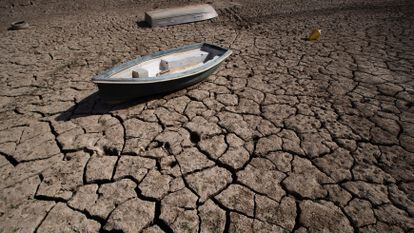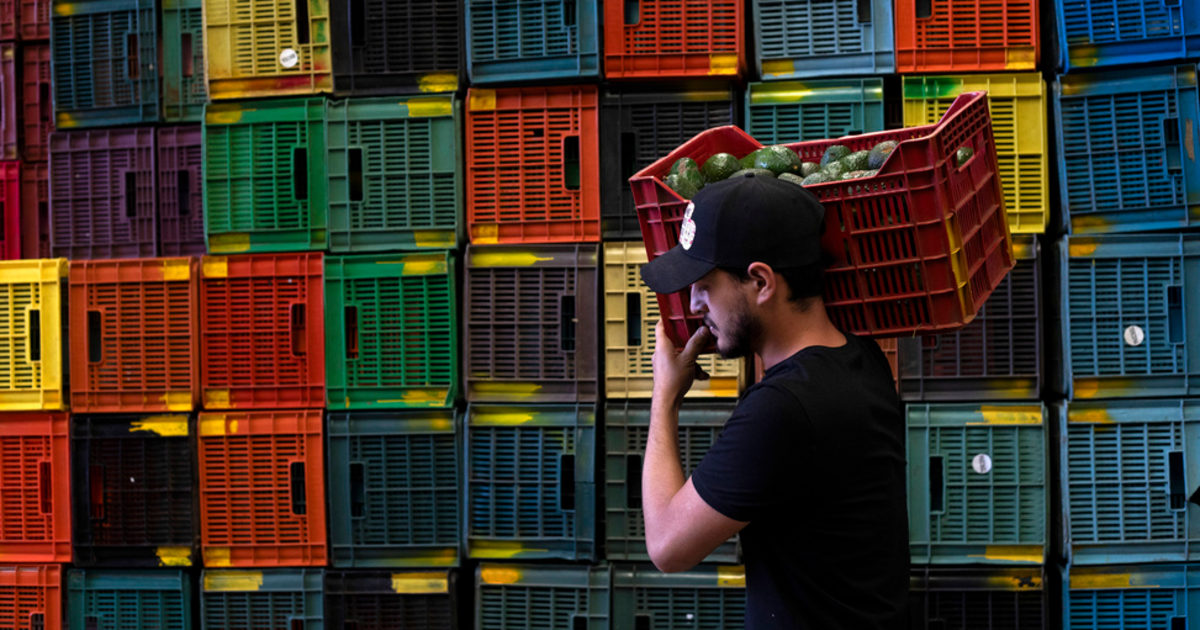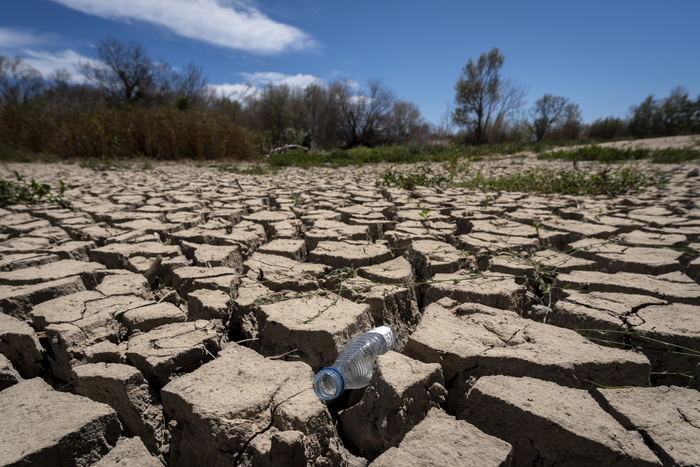About thirty farmers in the region of La Axarquía, east of the province of Malaga, are being investigated by the Civil Guard for illegal irrigation. Some are accused of carrying out irregular water catchments, according to sources from the Malaga Prosecutor's Office. To others, to divert water resources from irrigation communities in the area to land that does not have permission to do so. All are related to the cultivation of subtropical plants, especially avocados and mangoes, the main economic engine of an area that is the most important producer of these fruits in Europe, with just over 7,000 hectares.
It is also the sector that environmentalists accuse of wasting the little water left in the area both in the subsoil and in its main reservoir, La Viñuela, which is currently at less than 10% of its capacity, according to the Hidrosur network. In the case there were up to 180 involved, although it has been focusing on the main responsible, 36 people. Up to 26 of them have already declared before the Civil Guard accused of crimes against natural resources and the environment and water distraction.
The investigation, still open, is being developed by the Nature Protection Service (Seprona) of the Civil Guard. It started in 2018 following the complaint of some irrigators and the statements in various media of the association Ecologists in Action. It has been a complex job, with a slow pace due to the difficulty of the investigations and the opacity of the sector, in addition to the problems that arose later due to the arrival of the pandemic.
During the last five years, the agents have been verifying the existence of numerous illegal wells, irregular use of water from the swamp and theft of water in the pipes from one farmer to another, according to sources in the case.
They were resources extracted illegally in an area where competition is fierce due to the enormous growth of tropical crops, which require large amounts of water in a region where there is none. A situation that is now more problematic due to the lack of rainfall in recent years. Juan Manuel Moreno Bonilla, president of the Junta de Andalucía, announced last week that after the summer there will be water restrictions if it does not rain in the coming weeks.
The case once involved 180 people, although it was later reduced to 115. It is the figure that the Seprona sent in its documentation to the Environmental Prosecutor's Office of Malaga in September, and that this sent to the court of First Instance and Instruction number 1 of Vélez-Málaga. Little by little, the investigation, however, has been focusing the accusations on the main ones involved in this war of water and illegal wells "that are very difficult to find", according to sources in the case.
Finally, there are 36 people investigated, of which 26 have already appeared before the Civil Guard to be taken statement. These are irrigations that affect more than two million square meters, about 220 hectares, of avocados and mangoes. Many of them above the height of 140 meters, border included in the Guaro plan – which orders the irrigation of the area – to use water from La Viñuela in subtropical farms.
They are charged with crimes against natural resources and the environment and water distraction, according to information advanced by Sur on Monday. In the first case, farmers are accused of clandestinely extracting more than one million cubic meters of groundwater. In the second, to divert the water managed through several irrigation communities to unauthorized plots for it. The court, which now carries the instruction, has issued an official letter to the Seprona to inform those investigated that "cease water extractions until it is verified whether the procedure is legal or not", according to sources from the Superior Court of Justice of Andalusia (TSJA).
Last summer, with the La Viñuela reservoir at a minimum, some farmers in the Axarquía region began to sacrifice avocado trees to save crops. The reservoir was then close to technical death – the level at which water can no longer be used for irrigation or human consumption – and the situation is even worse this year. At this time of the year, but in 2022, the space hosted 27.99 cubic hectometres, while at this moment it has practically half: 16.12 cubic hectometres. That is, only 9.81% of its capacity.
State of the reservoir of La Viñuela, in Malaga, in November. Jorge Zapata (EFE)
For Ecologists in Action, the cause of all this is the uncontrolled growth of land dedicated to subtropical crops. "There are a number of hectares of irrigation well above that of water resources," says Rafael Yus, spokesman for Ecologists in Action and coordinator of the publication The bubble of subtropical crops and the water collapse of the Axarquía, with more than 600 pages. "The surface area of these trees cannot continue to increase unchecked. It will already be impossible to reduce it, but at least it must be maintained. And that is the responsibility of the administrations," insists Yus, who believes that there are "hundreds" of illegal wells in the area. According to specialists, each hectare of avocado needs about 7,000 cubic meters of water per year and each hectare of mango, about 5,500 liters, well above traditional crops in this corner of Malaga geography such as olive and almond trees. However, the surface of subtropical does not stop growing in the area in recent years due to its high profitability, now questioned by climate change.
The Minister of Sustainability, Environment and Blue Economy of the Junta de Andalucía, Ramón Fernández-Pacheco, has expressed this morning "the most absolute condemnation" by the Andalusian Government "to anyone who breaks the law". "Against drought there is only planning, investment and bidding of works," he added, while announcing that in 2023 43 million euros will be invested to provide more than 31 cubic hectometres to La Axarquía, of which 19 will be for irrigation. For his part, the sub-delegate of the Government in Malaga, Javier Salas, said that "in a few days" the proceedings that still remain to be done in the case by the Civil Guard will be completed.
You can follow CLIMA Y MEDIO AMBIENTE on Facebook and Twitter, or sign up here to receive our weekly newsletter
Subscribe to continue reading
Read without limits
Read more
I'm already a subscriber





/cloudfront-eu-central-1.images.arcpublishing.com/prisa/FIYK55I5FZEGNFS7VGPQ46MDIY.jpg)



